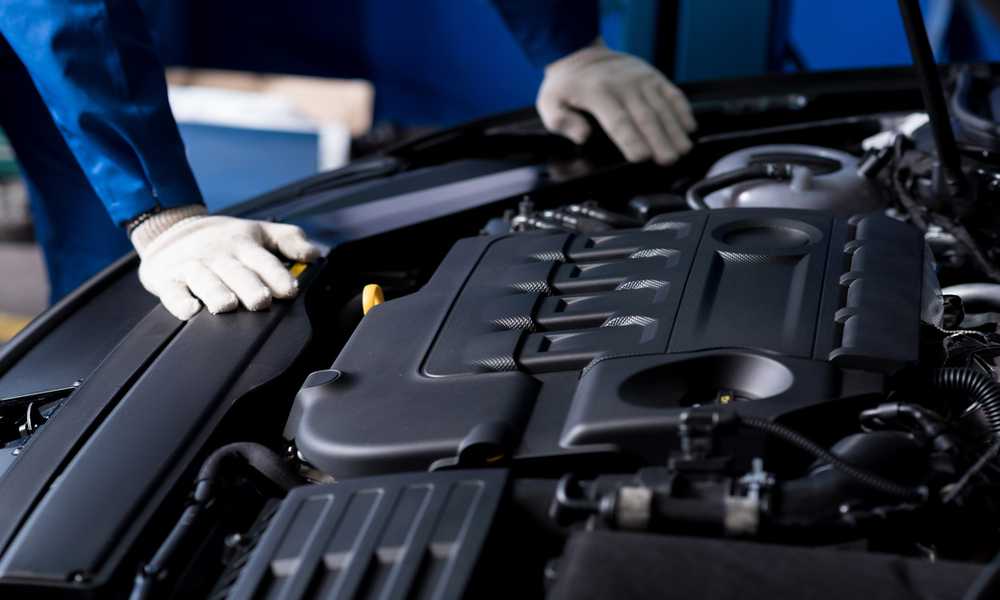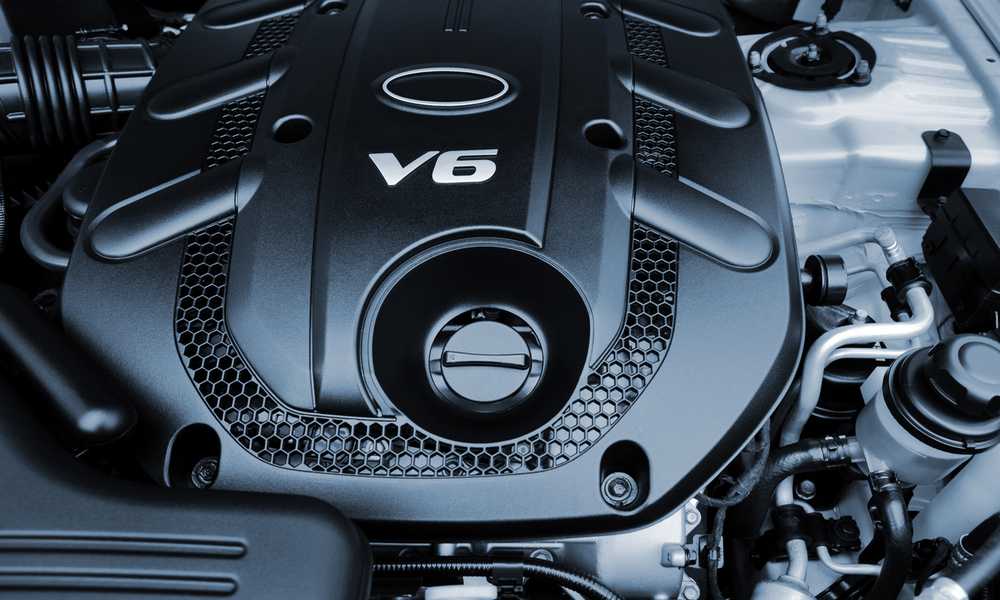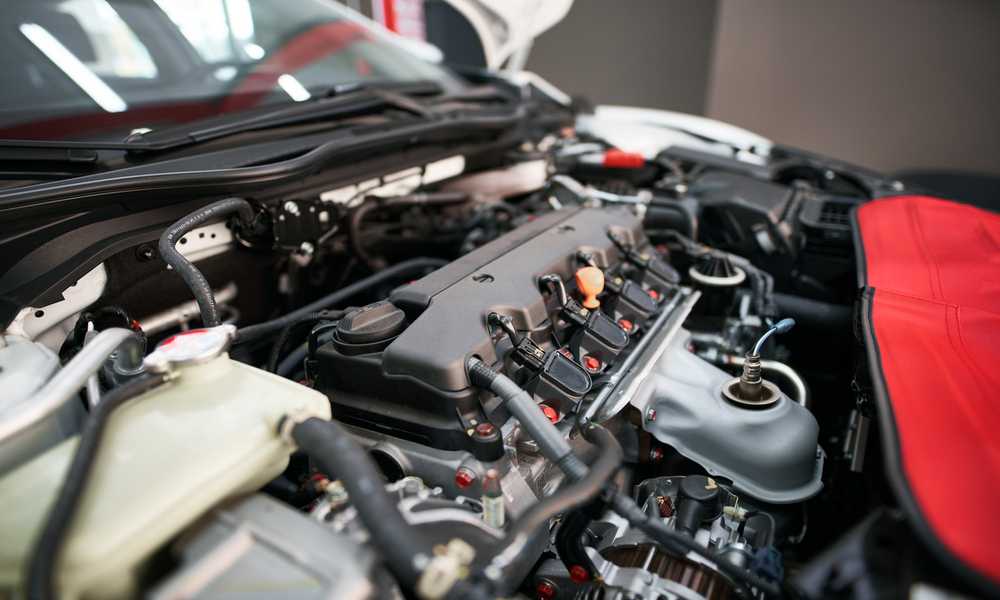When it comes to choosing the perfect car, there’s a lot more to consider than just its looks or horsepower. One crucial factor that often gets overlooked is the weight of the engine itself! The average weight of a 4 cylinder car engine can play a significant role in your vehicle’s overall performance and efficiency. So buckle up and get ready for an exciting ride as we delve deep into the world of car engines, explore how different factors affect their weight, and learn why knowing these details should matter to any automobile enthusiast or prospective buyer out there!
What factors affect how much a car engine weighs?
The engine model is one of the key factors that influence an engine’s weight. Different manufacturers and models come with varying specifications, and these can significantly impact the overall mass of the car engine.
Material used in constructing an engine also plays a pivotal role in determining its weight. Traditional cast iron engines tend to weigh more than their modern counterparts made from lightweight aluminum or magnesium alloys. These materials offer greater strength while reducing overall weight, making them popular choices for contemporary automobiles.
Another factor to consider is the number of cylinders within an engine. Generally speaking, an increase in cylinder count corresponds to a higher total weight due to additional components like pistons and connecting rods.
Engine size further impacts how much a car engine weighs. Larger engines often require heavier parts and more robust construction methods, resulting in increased heft compared to smaller alternatives with fewer displacement requirements.
Variations in engineering design contribute to discrepancies between weights across different engines. Innovations in manufacturing techniques have allowed some automakers to create lighter yet equally powerful engines by optimizing component arrangements or utilizing advanced production technologies such as 3D printing.
1. Engine model

When it comes to the weight of a car engine, one crucial factor that affects it is the engine model. As you may already know, there are different types of engines available in the market today. Each engine model has its own unique specifications and individual components that contribute to its overall weight.
For instance, some manufacturers opt for lightweight materials like aluminum or magnesium to construct their engines while others use heavier materials such as iron or steel. Additionally, certain engine models might have more complex designs with additional features and components that can add extra pounds.
Moreover, newer engine models tend to be lighter than older ones because of advancements in technology and engineering. Manufacturers continuously strive to develop ways to produce more efficient and high-performance engines without adding unnecessary weight.
All things considered; it’s important to note that different factors influence an engine’s weight regardless of the model used by a manufacturer. Therefore, when choosing a car based on its performance abilities or fuel efficiency ratings alone, one must also consider how much your choice will weigh under the hood!
2. Material used
The material used in car engines plays a crucial role in determining its weight. The use of lightweight materials such as aluminum and magnesium alloys has become increasingly popular over the years, especially for parts like engine block and cylinder heads. These materials offer high strength-to-weight ratio, making them ideal for reducing engine weight.
However, the use of lightweight materials can also lead to higher costs due to their manufacturing processes and limited availability. On the other hand, using traditional cast iron or steel for engine parts may add more weight to an engine but is often more cost-effective.
Moreover, different manufacturers have their own preferences when it comes to selecting engine materials. For example, some automakers might prefer aluminum blocks while others might opt for cast iron ones depending on their targeted market segment.
In addition to cost and material properties considerations, the choice of material also affects how well an engine performs under certain conditions such as extreme temperatures and pressures. Therefore, manufacturers must consider these factors carefully before choosing which type of material they will use in their engines.
The selection of materials used in car engines depends on multiple factors that need careful consideration by engineers designing them. While lighter materials are preferred because they improve fuel efficiency and performance capabilities; heavier metals can still be chosen if they provide better durability at lower costs.
3. Number of engine cylinders
The number of cylinders in a car engine is an important factor that affects the overall weight. A cylinder refers to the space where combustion occurs. An engine with more cylinders will have larger and heavier components, which contributes to its overall weight.
For instance, a 4-cylinder engine will generally weigh less than a V8 or V12 engine. This is because it has fewer parts and smaller components compared to larger engines. The size and weight of each component must be taken into account when designing an engine with multiple cylinders.
Additionally, having fewer cylinders can make for better fuel efficiency since there are less moving parts consuming fuel. However, this isn’t always true as modern technology allows for efficient multi-cylindered engines too.
In any case, the number of cylinders in an engine has significant effects on both performance and efficiency factors such as acceleration time and gas mileage rates respectively just like every other factor mentioned above.
4. Engine size
The size of a car engine is an important factor in determining its weight. Generally, engines with larger displacements tend to be heavier than those with smaller ones. The displacement of an engine refers to the total volume displaced by all cylinders during one complete cycle.
A bigger engine will have more cylinders and thus will require more space for them which adds up to the overall weight. However, that doesn’t necessarily mean it will always weigh more as there are other factors at play such as material used and construction type.
In addition, a larger engine may also provide greater power output which can be advantageous but comes at the cost of fuel efficiency due to higher energy requirements. As such, it’s important to consider your needs when choosing an engine size as well as other factors such as performance and handling.
There is no single “ideal” engine size – what works best for you depends on your specific driving preferences and requirements. Nonetheless, understanding how different aspects affect the weight of an engine can help you make better informed decisions when selecting a vehicle or replacing parts in your existing one.
5. Engine construction
The construction of a car engine is crucial in determining its weight. Engine manufacturers use different techniques to build engines that are both durable and lightweight. One common technique used in modern engines is the use of aluminum blocks instead of cast iron, which reduces engine weight significantly.
Another factor that affects engine construction is the manufacturing process. Engines produced using advanced casting methods tend to be lighter than those made using traditional casting techniques.
Furthermore, advancements in technology have enabled manufacturers to produce engines with fewer parts, reducing overall weight without compromising performance or durability. For instance, some modern engines incorporate cylinder deactivation technology that allows them to operate on fewer cylinders when power demands are low.
Moreover, turbocharging has become popular among automakers as it enables smaller displacement engines to generate more power while still being fuel-efficient and lightweight.
Hybrid technologies such as regenerative braking systems allow for energy recovery during deceleration and braking; thus reducing the reliance on conventional fossil fuels while keeping engine weights down.
Various factors affect engine construction; hence there’s no one-size-fits-all approach when it comes to building a lightweight yet powerful four-cylinder car engine.
Why does car engine weight matter?
Car engine weight matters for several reasons. First, a heavier engine may affect the car’s overall performance, making it slower and less responsive. In addition, a heavier engine can reduce fuel efficiency and increase fuel consumption.
Furthermore, the weight of an engine can impact how well a car handles on the road. A heavy engine can make the car feel more sluggish and difficult to control when driving at high speeds or through tight turns.
Safety is another important factor to consider when it comes to car engines. A lighter engine can help improve safety by reducing the risk of injury in case of an accident. When crashes occur, having less weight in the front of the vehicle will decrease its momentum upon collision.
Cost is also affected by a car’s engine weight. The heavier an engine is generally means that more materials are required which translates into higher costs for both manufacturers and consumers alike.
Understanding why car engines weigh what they do helps us appreciate how much engineering goes into each model as well as understand why they perform differently from one another even if they have similar horsepower ratings or torque numbers on paper!
1. Performance
Performance is a key factor to consider when looking at the weight of a car engine. A heavier engine can impact the acceleration, top speed and overall handling of a vehicle. This means that manufacturers need to find the right balance between weight and performance.
One way they do this is by using lightweight materials in their engines without sacrificing power or durability. For example, aluminum blocks are becoming more common as they are lighter than traditional cast iron blocks while still being strong enough to handle high-performance applications.
However, it’s important to note that not all engines are created equal when it comes to performance. The size, shape and number of cylinders can all impact how an engine performs on the road.
It’s up to each individual driver to decide what factors matter most when choosing an engine for their vehicle. Some may prioritize speed and acceleration over fuel efficiency or handling while others may value reliability above all else.
Regardless of what your priorities are, one thing is certain – finding the right balance between weight and performance is essential for getting the most out of your car engine.
2. Fuel efficiency
Fuel efficiency is a crucial factor to consider when it comes to car engines. The weight of the engine can significantly affect fuel consumption, which is why manufacturers often strive to reduce engine weight without sacrificing performance.
A lighter engine means less power is required to move the vehicle, resulting in improved fuel economy. In addition, some engines feature advanced technologies like direct injection and turbocharging that further enhance fuel efficiency while maintaining power output.
Another important factor that affects fuel efficiency is the type of transmission used. Manual transmissions offer better control over gear ratios and are generally more efficient than automatic transmissions. Hybrid and electric vehicles provide even greater fuel efficiency as they utilize alternative power sources like batteries or electric motors.
When choosing a car engine with good fuel efficiency, it’s essential to consider not only its weight but also other factors such as transmission type and technological advancements incorporated into its design. With these considerations in mind, you can make an informed decision on what suits your needs best while saving money on gas expenses!
3. Handling

Handling is a critical aspect of any car, and the weight of the engine can significantly impact how it performs on the road. A lighter engine will generally result in better handling, as it reduces the overall weight of the vehicle.
When an engine weighs less, there is less mass at work that could affect cornering or steering. This results in a more nimble driving experience with sharper responses from brakes and steering wheel inputs.
However, this doesn’t mean that all lightweight engines are good for handling. The position and balance of the engine also play significant roles in determining how well a car handles on different terrains.
In some cases, certain cars may require heavier engines to maintain their stability at high speeds or when carrying heavy loads. As such, manufacturers must find an optimal balance between power output and overall weight to ensure maximum efficiency in terms of handling.
While there’s no clear answer to whether lighter engines always result in better handling, it’s safe to say that keeping your vehicle’s weight low can lead to improved performance on various terrains.
4. Safety
When it comes to car engines, safety is often an overlooked factor. However, the weight of the engine can have a significant impact on the overall safety of the vehicle. A heavier engine can help improve stability and reduce the risk of rollovers in accidents.
Additionally, a lighter engine may be more prone to shifting during sudden stops or turns, which can lead to loss of control and potential accidents. It’s important for manufacturers to consider not only performance and fuel efficiency but also safety when designing their engines.
Furthermore, heavy engines are less likely to detach from their mountings during an accident than lightweight ones. This reduces the risk of serious injury to passengers inside the vehicle in such situations.
While engine weight may not be at top-of-mind for most drivers when considering car safety measures – it is still something worth taking into account as it could make all the difference in protecting oneself and others on roadways.
5. Cost
The cost of a car engine is influenced by several factors such as the materials used, number of cylinders and overall size. Generally, engines with more cylinders and larger sizes tend to be more expensive due to their complexity.
Moreover, advanced technologies like turbocharging or hybrid systems can also add up to the cost significantly. In addition to that, high-performance engines are designed with specialized parts made from premium quality materials which increases their price.
It’s important to keep in mind though that while a cheaper engine may help you save money initially, it might have higher maintenance costs in the long run due to frequent repairs and replacements.
When purchasing an engine for your vehicle, it’s essential to consider all these factors along with your budget before making a decision. It’s always advisable not just go for the cheapest option available but instead invest in an engine that offers good performance while still being within your financial reach.
What is the average weight of a 4 cylinder car engine?
When it comes to the weight of a car engine, there is no one-size-fits-all answer. The average weight of a 4 cylinder car engine can vary depending on several factors such as the model, material used, size, and construction.
Generally speaking, a 4 cylinder car engine weighs anywhere from 200-400 pounds (90-180 kg). However, this number can increase or decrease significantly based on the specific make and model of the engine.
For example, some high-performance engines may weigh more due to their larger size and added components like turbochargers or intercoolers. On the other hand, engines made with lightweight materials like aluminum may be lighter in weight.
It’s important to note that while engine weight is not always indicative of its performance or durability, it can have an impact on factors such as fuel efficiency and handling. In conclusion, the average weight of a 4 cylinder car engine varies greatly depending on various factors. While it’s important to consider weight when choosing an engine for your vehicle needs since every little detail counts towards optimal performance!
How much does a 4 cylinder engine cost?
The cost of a 4 cylinder engine can vary significantly depending on various factors such as the brand, model, and features. Generally speaking, these engines are less expensive than larger ones due to their smaller size and simpler design.
One factor that affects the cost is whether it’s a new or used engine. A new 4 cylinder engine from a reputable manufacturer could range anywhere from $2,000 to $5,000 while a used one could be much cheaper but comes with its own risks.
Another factor is the type of fuel system used in the engine. More advanced fuel systems like direct injection will generally increase the price tag since they offer improved performance and fuel efficiency.
Additionally, special features like turbocharging or hybrid technology can also bump up the cost of a 4 cylinder engine significantly.
If you’re looking for an affordable yet reliable option for your car’s power source, then a 4-cylinder engine might be just what you need. However, it’s important to do your research beforehand to ensure you’re getting good value for your money.
How much does a 2.0 engine weigh?
When it comes to the weight of a 2.0 engine, several factors come into play. The first and most significant factor is the materials used in its construction. The second is the type of engine construction; some engines are built to be lighter while others prioritize durability over weight reduction.
So, how much does a 2.0 engine weigh? On average, a 2.0-liter four-cylinder engine weighs around 300 pounds or roughly 136 kilograms. This number can vary significantly depending on what type of vehicle it’s installed in and its intended use.
It’s important to note that different manufacturers may have slightly different weights for their engines due to differences in design and manufacturing processes.
While weight is an essential consideration when designing an engine, other factors such as power output and fuel efficiency are equally crucial. Engineers must strike a balance between these elements to create an efficient and reliable powerplant.
The weight of a 2.0-liter four-cylinder engine varies depending on several factors such as materials used, construction type, intended use among others but generally falls within the range of about 300 pounds (136 kg).
How much does a V8 engine block weigh?
V8 engines have been a popular choice for many high-performance vehicles due to their powerful capabilities. But what about the weight of a V8 engine block?
The weight of a V8 engine block can vary depending on factors such as materials used and engine size. Typically, an aluminum V8 engine block can weigh anywhere from 85-110 kilograms (187-243 pounds), while an iron V8 engine block can weigh around 150-200 kilograms (330-440 pounds).
However, it’s important to note that the weight of just the engine block does not account for other components necessary for the functionality of the entire engine system.
While heavier than some other types of engines, the durability and power output provided by a V8 make it a desirable option for certain vehicles and driving preferences. The decision to choose a lighter or heavier engine will depend on individual needs and priorities.
How much does a V6 engine block weigh?

When it comes to engine blocks, the weight can vary depending on several factors. One of these factors is the number of cylinders that the engine has. A V6 engine block typically weighs more than a 4-cylinder engine block but less than a V8.
The weight of a V6 engine block will also depend on other variables such as the material used in its construction and its size. Generally, an aluminum V6 engine will weigh less than a cast iron one due to aluminum’s lighter nature.
A smaller displacement V6 will likely be lighter than a larger one due to fewer parts needed for construction. However, this may impact performance if horsepower output is compromised.
It’s important to note that while the weight of an engine block plays a crucial role in car handling and fuel efficiency, there are other crucial components in play too such as suspension systems and aerodynamics which all contribute towards overall vehicle dynamics.
Whether you’re building or buying an automobile with a V6 powertrain or any other type of motor – understanding how much your chosen componentry weighs is essential for optimizing performance and safety on the road ahead!
How heavy is a 2.4 L engine?
The weight of a 2.4L engine can vary depending on several factors, such as the model and construction of the engine. Generally, a 2.4L engine weighs around 300-350 pounds or roughly between 136 to 159 kilograms.
However, it’s essential to note that this is just an average figure and not a standard measurement for all engines with the same capacity. The weight can differ based on various aspects of the design, including material composition, number of cylinders, size and type.
Moreover, most manufacturers aim to make their engines lighter without compromising performance levels. This is done by using lightweight materials like aluminum in place of heavier ones like cast iron.
Additionally, other components attached to the engine such as manifolds and accessories also contribute towards its overall weight.
Therefore if you’re looking for more precise information about how heavy your specific 2.4L engine might be – consult your vehicle owner’s manual or contact a qualified mechanic who can give you accurate details about your car’s specifications.
Will engine weight affect its performance?
One of the most common questions that arise when it comes to car engines is whether or not their weight affects performance. The answer, as with many things in life, is a bit more complicated than a simple yes or no.
To begin with, the weight of an engine can certainly have an impact on its overall performance. For example, a heavier engine will typically result in slower acceleration and reduced fuel efficiency compared to a lighter one.
However, it’s important to note that there are other factors at play here as well. The design and construction of the engine itself can also greatly influence how it performs regardless of its weight.
For instance, engines with advanced technologies such as turbochargers and direct injection may be able to compensate for their added weight through increased power output and improved fuel economy.
Ultimately though, like many aspects of automotive engineering, finding the right balance between weight and performance is key. And while some may argue that lightweight engines are always superior from a performance standpoint, there are countless examples throughout history where larger engines have proven equally capable if not better performers in certain situations.
So while engine weight does indeed play a role in determining its overall performance capabilities, it’s far from the only factor at play here – making this particular question somewhat difficult to answer definitively without considering all relevant variables first.
Weight of car engine in kg
The weight of a car engine is an important factor to consider when looking at the overall performance and efficiency of a vehicle. The weight of an engine can vary greatly depending on factors such as the number of cylinders, size, material used, and construction.
In terms of kilograms (kg), the weight range for a 4 cylinder car engine can be anywhere from around 100-200 kg. This is just a rough estimate as there are many different models and variations within this category.
It’s important to note that while lighter engines may offer better fuel efficiency and handling, heavier engines can provide greater power and durability. It comes down to finding the right balance between these factors for your specific needs.
Diesel engines tend to be heavier than gasoline engines due to their larger size and more robust construction. However, advancements in technology have led to lighter diesel engines being developed in recent years.
Understanding the weight of a car engine is just one piece of information that contributes to making informed decisions about your vehicle. It’s essential to consider all aspects before settling on any particular model or type of engine.
Are diesel engines heavier than gasoline engines?
Diesel engines have been known to be heavier than gasoline engines due to their design and construction. Diesel engines tend to have a larger displacement and stronger internal components, resulting in an overall heavier engine block.
The added weight of diesel engines can impact the vehicle’s performance, such as acceleration and handling, but it also provides benefits such as increased torque and towing capacity.
However, with advancements in technology and materials used in engine construction, the weight difference between diesel and gasoline engines has become less significant. Manufacturers are now able to produce lighter diesel engine blocks without sacrificing durability.
It’s important to note that while diesel engines may be heavier on average compared to gasoline ones, there are many other factors that come into play when considering which type of engine is best for your needs. It ultimately depends on your specific requirements for power output, fuel efficiency, cost-effectiveness, emissions regulations compliance among others.
Are bigger engines more durable?
When it comes to engine durability, the size is not always the determining factor. Bigger engines may seem more durable due to their construction and ability to handle heavy loads, but smaller engines can be just as reliable if maintained properly.
The durability of an engine depends on various factors such as material quality, design, manufacturing process and maintenance. A well-designed and manufactured small engine with high-quality materials can last longer than a poorly made larger engine.
In addition to this, bigger engines are usually subjected to more wear and tear due to increased power output which puts more strain on internal components leading them towards early failure. However, smaller engines that are designed for specific applications can also face similar problems if they are pushed beyond their limits.
The key factor in determining an engine’s longevity is proper maintenance. Regular oil changes and tune-ups can significantly increase its lifespan regardless of its size or model. So whether you have a large V8 or a small 4-cylinder engine under your hood, maintaining it properly will ensure optimal performance and longevity.
Engine weight vs. performance

When it comes to car engines, weight and performance are two critical factors that can affect the overall driving experience. Generally, a lighter engine will improve acceleration and handling while a heavier engine may be more durable and provide better torque. However, there is no one-size-fits-all answer when it comes to engine weight vs performance.
Car manufacturers strive for an optimal balance between weight and power to maximize fuel efficiency without sacrificing performance. Engineers often use lightweight materials such as aluminum or carbon fiber in the construction of the engine block to reduce weight while maintaining durability.
Additionally, advancements in technology have allowed for smaller engines with turbochargers or superchargers to produce more power than larger naturally aspirated engines. This means that a 4-cylinder turbocharged engine could outperform a V6 or even V8 engine while weighing less.
Finding the right balance between engine weight and performance depends on various factors such as vehicle type, driving style, budget, and personal preference. It’s important to do research before purchasing a car to ensure that you get an ideal combination of both power and efficiency.
Final thoughts
As we can see, the weight of a car engine is affected by several factors such as engine model, material used, number of cylinders, size, and construction. The average weight of a 4 cylinder car engine ranges from approximately 300 to 400 pounds depending on these factors.
While the weight of an engine may not seem like a big deal to some people, it can actually have significant impacts on performance, fuel efficiency, handling, safety and cost. It’s important to consider all these aspects before making a decision about which type of engine to choose for your vehicle.
At the end of the day though, whether you have a heavy or light engine doesn’t necessarily determine its quality or durability. Choosing an appropriate and reliable brand with good engineering practices will ensure that your vehicle lasts longer no matter what kind of engine you go for.
So when it comes down to choosing between engines with different weights and specifications – do your research carefully! And remember that ultimately it’s up to personal preference as well as technical requirements like power output or emissions regulations which should guide any final decisions made about what kind (and how much) horsepower is needed under the hood.



